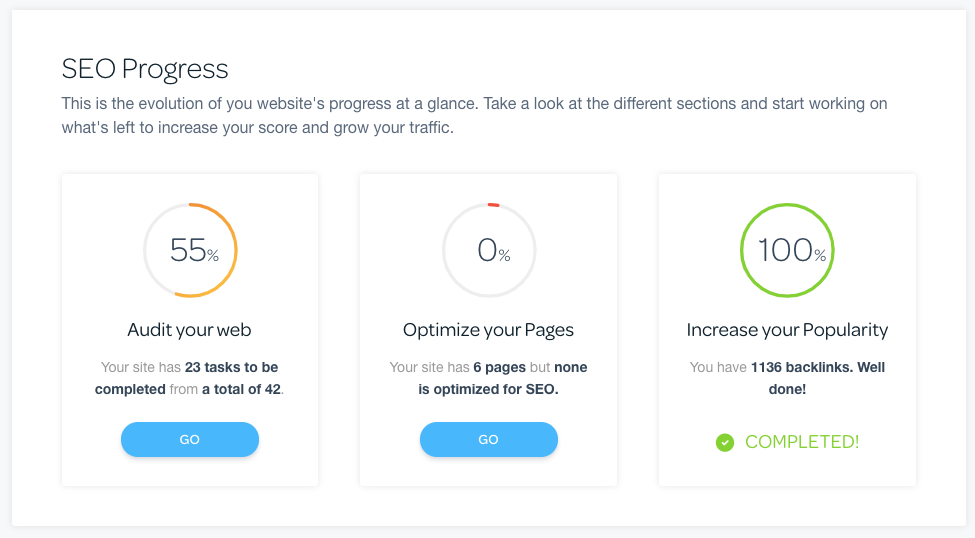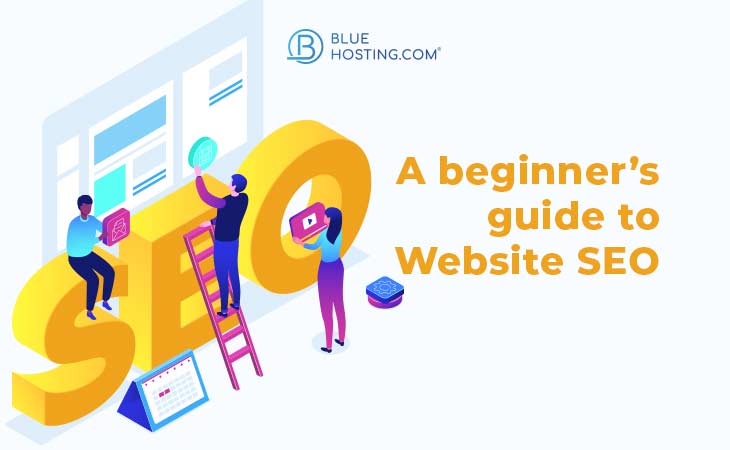When you create a website it’s like a child, and all you want is for it to do well. That is what makes you so disappointed when your website gets little or no traffic. Luckily, just as you would educate your child to give him/her a better chance of success, you can do the same with your website. “How?” you may ask. By learning about and implementing website SEO tools and techniques.
This beginner guide to website SEO will have you bragging like a proud parent. Search Engine Optimization (SEO) is what makes persons flock your website. Even just a little SEO knowledge can make a big difference.
This SEO beginner guide will help you with optimising your website. That is from finding keywords to help you generate qualified organic traffic to website SEO tools and ways to make your website more search engine friendly.
Table of Contents
What does SEO mean?

Search Engine Optimization (SEO) is the practice of increasing your site’s visibility and improving your website’s ranking in an organic (non-paid) way. This makes SEO an effective and affordable way to generate traffic to your website.
By optimizing your content using specific keywords, creating high-quality content, and building internal and external links you are using SEO.
Is SEO really Important?
What’s the first thing you do when you need anything from a doctor to a headscarf? That’s right, you search for it on Google or your preferred search engine. The top results you see are from websites with savvy website SEO tactics. On that first page and no further than the third, you will select the website you want to do business with.
Every website needs traffic to thrive. Rest assured that if your website isn’t SEO optimized, it won’t pop up on the first pages and no one will be able to find you. This will cause you to miss increasing your reach and bottom-line. To add insult to injury, your audience will click-through your competitors’ website since yours isn’t in the search results as an option.
How do you fix that? By implementing sound website SEO techniques like keywords and links.
In plain English, SEO is the art of optimizing your online content so that search engines love to show your website as a top result for searches with certain keywords.
Why is that important? Simply beacuse persons hardly ever scroll past the first three search results. If you aren’t there, you get left behind.
4 Reasons Why Rank Matter
To ensure that your website pops up in the search results, you must begin with a few key steps. Let’s go!

1. Keyword Research and Use
Keywords refer to words and phrases that persons search for using search engines. So, before you start implementing keywords into your content, you have to ensure you know the ones that apply to your customers.
Just a bit of critical research will help you to leverage the most common and highest quality keywords that your audience uses. You can use a number of Keyword Research tools like Google Trends to find out what people search for and other vital information, such as:
- Top search words and phrases
- The search volume
- Competition level
Once you know who your audience and the exact words and phrases that they are searching for, you are ready to implement your SEO plan. Sounds good? It should, here is exactly how to do it.
If you already run an ecommerce website, you should already have an idea of what your target customer looks like. So, go ahead and create content around topics that your customers search for.
Once you have done your research for keywords to target, it’s time to implement them all through your website and content. Keyword placements should include:
- Website Content
- Headers
- Title Tags
- Image Alt Text
- Meta Descriptions
- Buttons
2. Leveraging SEO Tools and Plugins
If you own a WordPress website, you have access to a number of SEO tools and plugins to help boost your ranking. These tools can help you in identifying content optimization opportunities.
Use the following SEO tools and plugins to help to amplify your rankings and website visibility:
- Yoast SEO
- Hosting.co.uk SEO Tools
- Google Analytics
- All in One SEO
You can also use SEO tools and plugins to check your website’s health, keep track of and maintain your traffic. Simply let them help you improve your content for increased reach, traffic and online marketing campaign.
3. Internal Links
Internal links direct customers to relevant content or pages on your site. This helps to keep visitors on your site. In essence, internal links help you to rank higher on search engines. Therefore, you should have a solid internal linking strategy.
How exactly do internal links help with SEO ranking? Internal links spread authority throughout your website. Whenever a search engine analyses your homepage they check for links to internal content, marking it as having the most authority or value. For example, we can easily place a link on how to improve your website speed. This is relevant to the topic because the speed of your website also affects your SEO ranking.
Whenever you have links to other pages and content on your site, this value also spreads to those pages as well. As search engines carry out crawls on your website, your internal linking structure helps to determine the values of each page and piece of content.
That’s why websites with only a few internal links do not rank well, as they are seen as less valuable by search engines bots. That is direct result of lack of relationships between content.
So, how do you improve your website’s internal linking structure? There are a number of ways to do this; here are just a few of these strategies.
- Creating links to and from cornerstone content. Your cornerstone content can be the best and most important blog or page on your website.
- Adding links to logical and relevant content.
- Including relevant anchor text within links. An anchor text refers to the clickable text in a hyperlink
- Creating applicable links for your FAQ pages.
4. External Links
External links refer to links on other websites that lead to your website content. Internal links show the connections between content on your website. On the other hand, external links show search engines that your website is relevant and has relationships with top websites across the Internet.
While the value in the quantity of external links to your site gets consideration, the quality of your links is what truly matters. The more authoritative the website that links your content the greater the value.
Let’s explain. If your website is all about informing and educating readers about creative cooking. Receiving an external link from a major authority company like Buzzfeed’s Tasty brand, is far more valuable than a link from a new, up and coming blog.
But, how do you get external links? Surely, they don’t just magically appear. You are right, they do not, and you have to put in the work. To help you, we have created a few tips on the ways you can gain external links.
- Creating online directories for your brand.
- Sending emails to fellow bloggers, site owners, and brands explaining why their readers would find your content valuable.
- Forming collaborative relationships with authors by reposting other blog content with permission.
- Adding links to other experts/authority figures in your content.
- Strategically sharing your content on top social media networks, communities and forums.
By using these simple techniques, you can build up a solid portfolio of external links from several valuable sources.
What’s the take-away on SEO?
By arming yourself with relevant keywords, website SEO tools, internal and external links, you are ready to implement a solid search engine optimization strategy to boost your site’s ranking and reach. This improves how you create engaging and optimized website content. Do you have more questions on website? Let us know or ask for a free consultation here.
